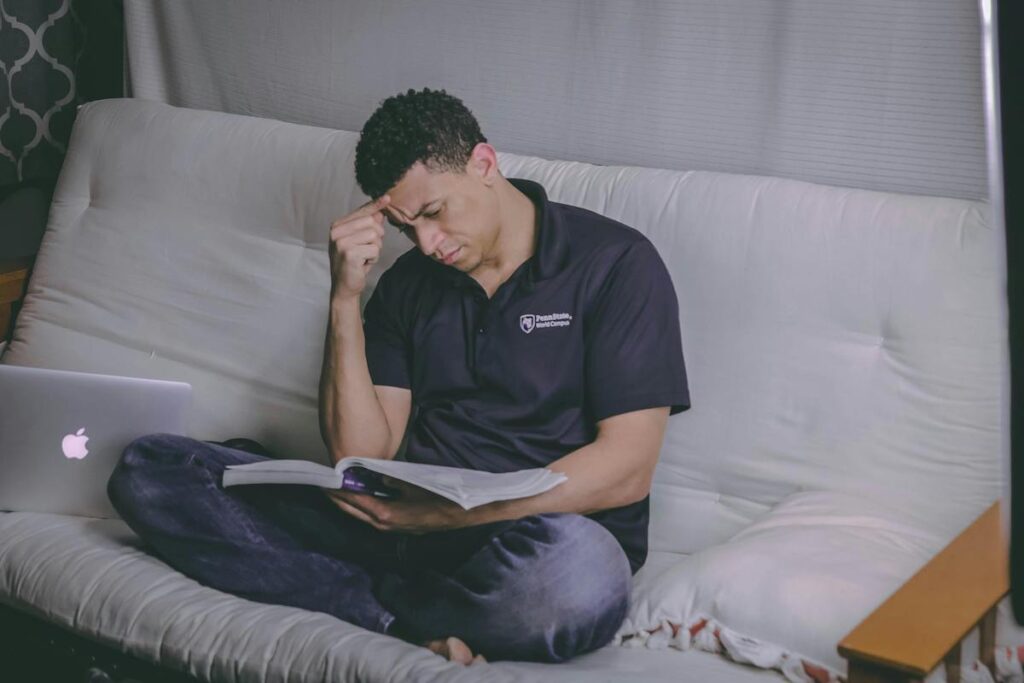The Uncertainty Parents Face
Watching your college-aged child struggle can be deeply unsettling. You might notice changes like irregular sleep, slipping grades, irritability, but you’re unsure whether it’s typical college stress or something more serious. Could your college child be using drugs, or are they just overwhelmed?
This question haunts many parents, especially as students transition into greater independence. College life introduces new social pressures, academic expectations, and emotional challenges. It can be difficult to distinguish between stress-related symptoms and substance use.
You don’t want to overreact, but ignoring red flags could mean missing a critical window for help.
What Does “Normal” College Stress Look Like?
College students today face enormous pressure. Between academic performance, social belonging, financial strain, and future uncertainty, stress has become a near-constant presence in many young adults’ lives. Some common signs of college stress include:
- Changes in sleep patterns
- Occasional anxiety or sadness
- Procrastination or avoidance
- Fluctuating grades or academic performance
- Social withdrawal or mood swings
These symptoms alone do not indicate drug use. Stress may cause your child to pull away, act moody, or appear disorganized. But when these patterns become extreme or are paired with other warning signs, it’s time to look closer.
Warning Signs That Point Toward Drug Use
If you suspect your college child is using drugs, specific behaviors often signal more than just stress. While not all signs are definitive, you should take note if you observe the following:
- Drastic changes in appearance (weight loss, poor hygiene, bloodshot eyes)
- Increased secrecy or lying about whereabouts
- Sudden financial problems or missing items from home
- Hostility when questioned or confronted
- Declining academic performance despite effort or tutoring
- A shift in peer group or disengagement from long-time friends
- Evidence of substances or paraphernalia
Trust your instincts. If something feels off and the behaviors persist or escalate, it may be time to dig deeper.
Understanding Why Students May Use Substances
There are several reasons your college-aged child may turn to drugs:
- Stress relief: Some students self-medicate to cope with anxiety, depression, or academic pressure.
- Social acceptance: Peer pressure plays a strong role in college life. Party culture can normalize frequent or binge drug use.
- Sleep management: Stimulants like Adderall or recreational THC products may be used to stay awake or wind down.
- Curiosity or rebellion: Some teens experiment with drugs as a way to push limits, escape structure, or feel adult independence.
While occasional experimentation doesn’t always lead to addiction, it increases the risk, especially when it becomes a consistent coping mechanism.
How to Start the Conversation
If you’re wondering whether your college child is using drugs, the best way to begin is by creating a safe, judgment-free space. Avoid lectures or accusations, as these often lead to denial or shut down.
Here are a few ways to start the conversation:
- “You’ve seemed really stressed lately. Do you want to talk about how things are going?”
- “I’ve noticed some changes, and I’m feeling worried. Can we talk openly about what’s been going on?”
- “If you’re struggling, you don’t have to handle everything alone. I want to support you.”
The goal is to open a door, not to force them to walk through it. Be prepared for defensiveness, but continue offering support and honesty.
When Your Child Denies There’s a Problem
It’s common for young adults to downplay their substance use, especially if they believe they are managing it well. They may say:
- “Everyone’s doing it.”
- “It’s not a big deal.”
- “I’m just stressed out.”
- “You’re overreacting.”
Stay calm and firm in your concern. Reflect back what you’re seeing. For example, “I hear you, but I’ve noticed your energy has changed, and you’re not yourself lately. That’s why I’m worried.”
If your child continues to deny drug use but concerning behaviors persist, you may need to bring in a third party, such as a therapist or addiction specialist, for an assessment.
Encouraging Professional Help Without Pressure
If you suspect your child is using drugs, professional help can be transformative. The challenge is getting them to accept it without feeling attacked.
Here are some ways to introduce the idea:
- Offer to schedule a session with a counselor just to talk.
- Suggest an evaluation—not a commitment to treatment.
- Emphasize support rather than punishment.
Framing help as a resource instead of a consequence increases the chance your child will listen. You might say, “This isn’t about blaming you, it’s about helping you feel better.”
Supporting Their Mental Health at the Same Time
Stress and substance use often go hand-in-hand, especially in young people. That’s why supporting their mental health is just as important as addressing potential drug use.
You can encourage better mental health by:
- Helping them find a therapist, whether in-person or online
- Promoting healthy habits like exercise, sleep, and proper nutrition
- Staying in regular contact with check-ins that aren’t only about performance
Let them know it’s okay to struggle—and that asking for help is a sign of strength.
Knowing When to Step In More Directly
In some cases, the situation becomes urgent. If your college child is using drugs in a way that endangers their life, safety, or the safety of others, you may need to step in more firmly.
Emergency signs include:
- Signs of overdose or poisoning
- Driving under the influence
- Physical violence or self-harm
- Academic probation or expulsion due to drug-related issues
In these moments, immediate action matters more than your child’s permission. Call emergency services if needed, and contact an addiction specialist to explore safe treatment options.
Creating a Long-Term Plan
If your child is using drugs, recovery is possible with the right support. Treatment options include:
- Outpatient therapy near their college
- Telehealth counseling
- Residential treatment during breaks or semesters off
- Family-based programs that include loved ones in the healing process
Work with professionals to create a plan that fits their unique situation. Be ready to adjust as their needs shift.
Final Thoughts
Wondering whether your college child is using drugs or just stressed is an agonizing question, but you don’t have to face it alone. Pay attention to your instincts, talk openly, and offer nonjudgmental support. Stress may be the issue, but if it isn’t, early intervention can save their future. Call our team to learn more about the options.



